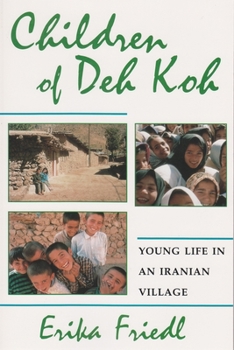Children of Deh Koh: Young Life in an Iranian Village
Select Format
Select Condition 
Book Overview
The children of Deh Koh live in a society that is often harsh. Yet, while outward circumstances of post-revolutionary village life seem to limit young people's experiences, their strategies to surmount authority and personal demands through their games, pastimes, and the gendered patterns of interaction provide unexpected choices for movement and thought. In Children of Deh Koh, the youngsters emerge as unsentimental realists who manipulate their meager resources as they learn from their elders ambiguous truths about how the world operates.
Friedl weaves together local practices, cognitive categories, folklore, and anecdotes concerning all aspects of growing up: from conception to early childhood, from understanding religion to using kinship terms correctly. Readers of Women of Deh Koh will once more welcome Friedl's lyrical descriptions of a society both universal and unfamiliar. New readers will discover a world that defies easy categorization.Format:Hardcover
Language:English
ISBN:0815627564
ISBN13:9780815627562
Release Date:November 1997
Publisher:Syracuse University Press
Length:328 Pages
Weight:1.36 lbs.
Dimensions:1.2" x 6.2" x 9.3"
Customer Reviews
0 rating





